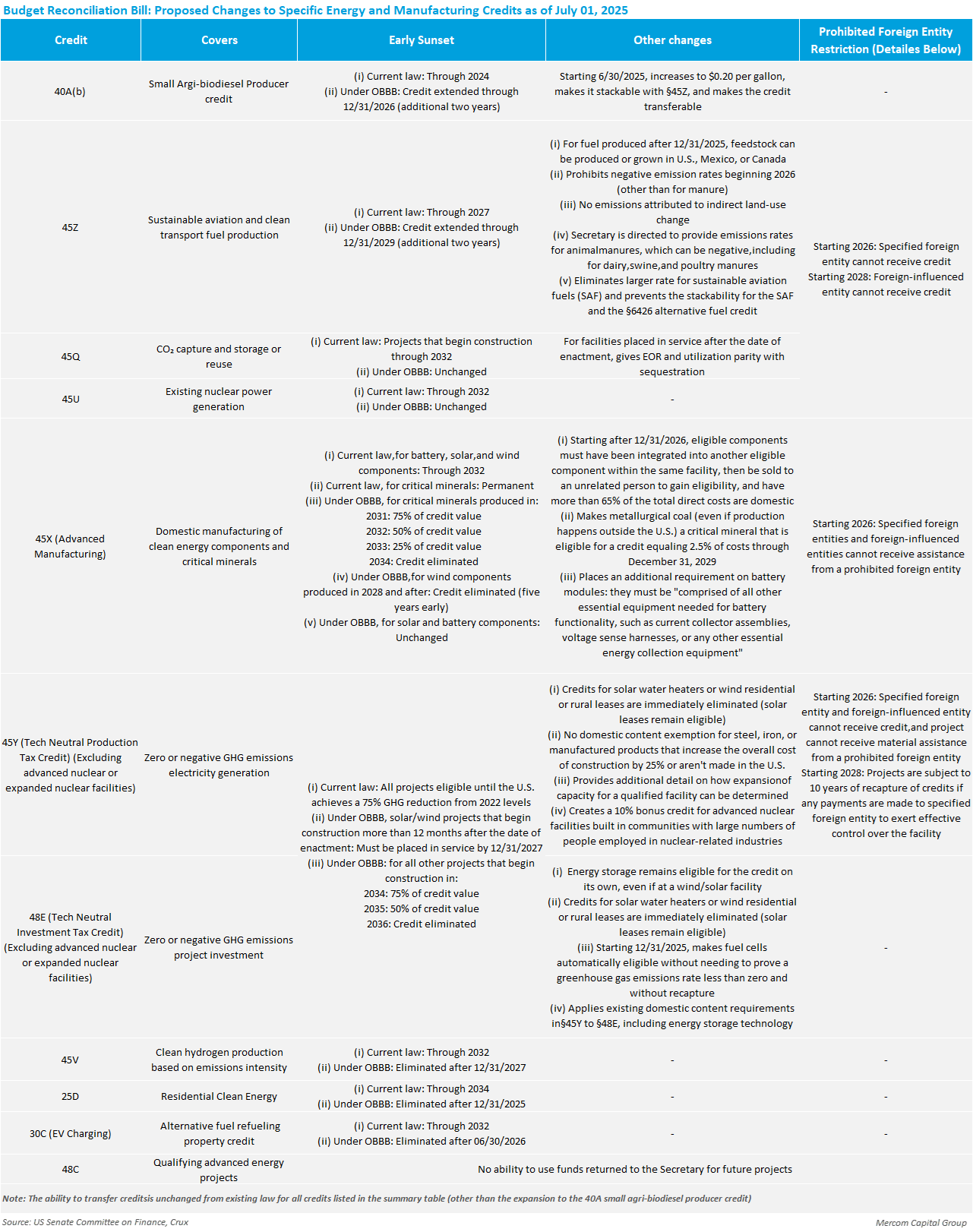Senate Passes Budget Bill Without Excise Tax on Wind and Solar Projects
Wind and solar projects breaking ground within 12 months of the bill’s passage can avail full ITC and PTC
July 2, 2025
Follow Mercom India on WhatsApp for exclusive updates on clean energy news and insights
The United States Senate has passed the budget reconciliation bill that removes the proposed excise tax on wind and solar projects. The bill’s previous version included a tax of 50% on solar and 30% on wind projects commissioned after December 31, 2027, if they were constructed after the date of enactment and received material assistance from prohibited foreign entities.
Material assistance restrictions would still apply for projects beginning construction after December 31, 2025.
The final Senate version includes a key revision, wherein solar and wind utility-scale projects breaking ground within 12 months of the bill’s passage will still qualify for the full Section 48E Investment Tax Credit (ITC) and the Section 45Y Production Tax Credit (PTC).
However, projects that begin construction after the 12-month grace period must be placed in service by 2027 to remain eligible.
The bill also proposes phasing out the manufacturing production credit for critical minerals. In 2031, the credit for critical minerals would be limited to 75%. It would drop to 50% in 2032, 25% in 2033, and end entirely in 2034. The credit for wind components would phase out earlier, ending for items produced and sold after December 31, 2027.
The bill passed in the Senate by a vote of 51 to 50, with Vice President Vance casting the tie-breaking vote. The bill now returns to the House of Representatives. If the House approves the Senate’s version without changes, the legislation will move directly to President Trump’s desk for signing into law.
Donald Trump has issued a raft of executive orders seeking to reverse his predecessor’s climate and energy agenda soon after assuming office as U.S. president. One of his first orders directed federal agencies to immediately pause the disbursement of funds through the IRA, which proposed spending millions of dollars to promote clean energy.

